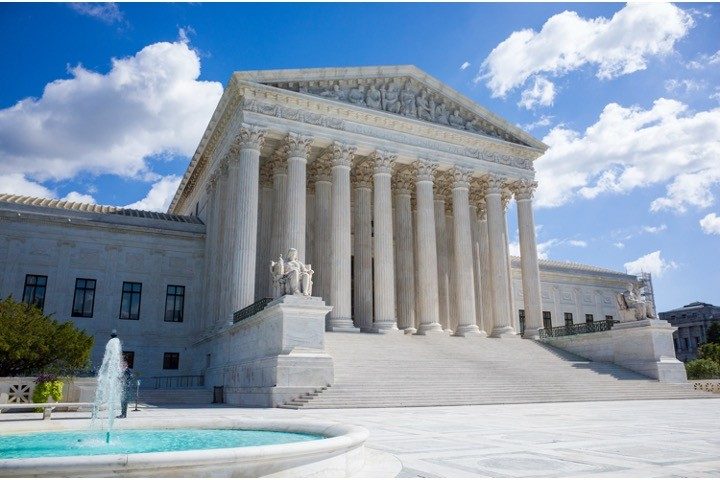
In a rare unanimous decision, the Supreme Court ruled on Thursday that an anti-gun, anti-Second Amendment, anti-NRA New York State official overstepped her lawful bounds.
Maria Vullo, while acting as the superintendent of New York’s Department of Financial Services (DFS) in 2018, threatened insurance companies under her jurisdiction with sanctions and fines unless they terminated their business relationships with the National Rifle Association (NRA).
Writing the opinion was liberal Justice Sonia Sotomayor. And assisting in the defense of the NRA was the American Civil Liberties Union (ACLU). Strange bedfellows, indeed, but agreeing in this case that the First Amendment to the U.S. Constitution was violated grievously by Vullo. The case returns to the Second Circuit of Appeals, which had dismissed the NRA’s initial complaint. The NRA is seeking money damages in that suit.
Wrote Sotomayor:
The NRA plausibly alleged that respondent [Vullo] violated the First Amendment by coercing [her] regulated entities to terminate their business relationships with the NRA in order to punish or suppress gun-promotion advocacy.
As an example, she reviewed how Vullo coerced insurance giant Lloyds of London to end its co-insurance agreement behind one of the NRA’s insurance policies:
As DFS superintendent, Vullo had direct regulatory and enforcement authority over all insurance companies and financial service institutions doing business in New York.
She could initiate investigations, refer cases for prosecution, notice civil charges, and enter into consent decrees.
Vullo’s communications with the DFS-regulated entities, particularly with Lloyd’s, must be considered against the backdrop of Vullo’s authority.
Vullo made clear she wanted Lloyd’s to disassociate from all gun groups, although there was no indication that such groups had unlawful insurance policies similar to the NRA’s.
Vullo also told the Lloyd’s executives she would “focus” her enforcement actions “solely” on the syndicates with ties to the NRA, “and ignore other syndicates writing similar policies.”
The message was loud and clear: Lloyd’s “could avoid liability for [unrelated] infractions” if it “aided DFS’s campaign against gun groups” by terminating its business relationships with them.
As the reaction from Lloyd’s further confirms [the giant ended its co-insurance agreements with the NRA], Vullo’s alleged communications—whether seen as a threat or as an inducement—were reasonably understood as coercive.
She dismantled the Second Circuit’s dismissal of the NRA’s original lawsuit which declared that what Vullo had done was permissible and legitimate:
The Second Circuit concluded that Vullo’s alleged communications were “examples of permissible government speech” and “legitimate enforcement action.”
The Second Circuit could only reach this conclusion, however, by taking the complaint’s allegations in isolation and failing to draw reasonable inferences in the NRA’s favor.
She expanded:
The NRA’s allegations, if true, highlight the constitutional concerns with the kind of strategy that Vullo purportedly adopted.
Although the NRA was not the directly regulated party here, Vullo allegedly used the power of her office to target gun promotion by going after the NRA’s business partners….
The takeaway is that the First Amendment prohibits government officials from wielding their power selectively to punish or suppress speech, directly or (as alleged here) through private intermediaries.
Vullo was happy to enforce then-governor Andrew Cuomo’s anti-gun, anti-NRA agenda:
The same day that DFS issued the [threatening] Guidance Letters [to its regulated insurance companies], Vullo and Governor Cuomo issued a joint press release that echoed many of the letters’ statements.
The press release included a quote from Vullo “‘urg[ing] all insurance companies and banks doing business in New York’” to join those “‘that have already discontinued their arrangements with the NRA.’”
The press release cited Chubb’s decision to stop underwriting Carry Guard as an example to emulate.
The next day, Cuomo tweeted: “The NRA is an extremist organization. I urge companies in New York State to revisit any ties they have to the NRA and consider their reputations, and responsibility to the public.”
Justice Sotomayor summed up the court’s unanimous reasoning:
A government official can share her views freely and criticize particular beliefs, and she can do so forcefully in the hopes of persuading others to follow her lead. In doing so, she can rely on the merits and force of her ideas, the strength of her convictions, and her ability to inspire others.
What she cannot do, however, is use the power of the State to punish or suppress disfavored expression….
In sum, the complaint, assessed as a whole, plausibly alleges that Vullo threatened to wield her power against those refusing to aid her campaign to punish the NRA’s gun-promotion advocacy.
If true, that violates the First Amendment.
The ruling on Thursday returns the case to the Second Circuit with the admonishment that it follow what the high court has ruled as fact — that Vullo did violate the NRA’s rights — and thus allow the NRA’s claim for money damages to move forward.



